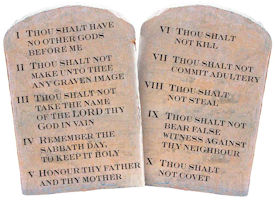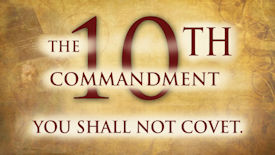Not long ago, I received an email letter from a visitor to The Outlaw Bible Student website; it was from a lifelong research scientist, university professor, and author. This letter wasn’t positive or negative directly toward me, but from the tone of it, I knew it was unquestionably from an atheist.1
I have found that most atheists in academia2 have great difficulty ‘thinking outside the box’3 — they can’t wrap their mind around anything of a spiritual nature. There are some exceptions, of course, but true information to most of them must be physical or demonstratable in a laboratory setting.
This is slowly changing, to some extent, because quantum physics research is beginning to pierce the veil between our reality and other dimensions or realms. But spiritual things are still generally rejected as ridiculous; they seem impossible, therefore unbelievable to most scientists. I’m not going to attempt to explain quantum physics here, but to give you an idea of possible science-religion links, some physicists are discussing godly concepts that even Einstein once called ‘spooky’.4
I do not believe that science is the enemy of faith, but that science and Judeo-Christian doctrine can be accommodated together. So all through my life I studied science and now feel what I’ve learned has given me a better and closer relationship with my heavenly Father. In a book titled Is God a Scientist? the author states: “In the past scientists have said that God has two books, one of scripture and one of nature. If this is so, then religion and science should complement one another as Copernicus, Galileo and Newton believed.”5
Twelve Commandments?
 Getting back to the subject of this article, let me explain the content of the letter I received. I won’t give details of who the scientist is, but the writer explained that he/she added a section to one of their books, about the Holy Bible’s commandments and how they could be improved. First are listed the twelve commandments, which some prophets (as the letter stated) “claimed to be the word of God,” and then went on to amend them for ecological reasons.
Getting back to the subject of this article, let me explain the content of the letter I received. I won’t give details of who the scientist is, but the writer explained that he/she added a section to one of their books, about the Holy Bible’s commandments and how they could be improved. First are listed the twelve commandments, which some prophets (as the letter stated) “claimed to be the word of God,” and then went on to amend them for ecological reasons.
Yes, I know what you are thinking! God gave Moses ten commandments, not twelve. This one fact should tip off any Jew or Christian that this scientist didn’t even know the most basic fact of how many commandments were given, yet still thought they had the ability to improve upon them. Even more amusing, is that the book publisher (one of the most respected in the world of science) let this conspicuous error slip by. I guess accuracy doesn’t matter to them. If it relates to something religious or relates to God on any level, it must be of no value.
The writer did say that those original twelve offered good moral advice as “composed by the early prophets”, but that some people with “personality disorders” chose to disregard them and live by their own rules. This letter writer must have thought the Law of Moses was written by a committee, instead of by Yahweh with his own hand upon those stone tablets. And, the writer had no inkling of when these personality disorders originated, or that they are what the Bible calls sin.
Anyway, the writer went on to explain that God’s commandments are “inadequate” for populations in a modern world, and then continued by suggesting several new replacement commandments much more fitting for humankind. The idea was to substitute rules for maintaining an equilibrium between different elements of living organisms and the earth (homeostatisis).6
The ideas listed were logical ones and they can be found scattered within many environmental, conservation, and sustainable-future groups’ websites and literature. However, the letter writer proceeded to point out that any such commandments must “not depend on criteria that have a mythological basis.” Although my criticism of this letter may sound like a personal grievance aimed to the writer, that is wrong; it is not the writer, but the attitude in presenting these improvements to God’s work, that is the important point in this article.
 This discourse is a complaint against an institution that can become so constricted in thought that those within it can not comprehend things very near and evident. Even though they have powers of perception, these highly educated people are “foolish and senseless people, who have eyes, but do not see, who have ears, but do not hear,” (Jeremiah 5:21, NRSV). It is difficult to understand that some groups of people can be so arrogant and think they are so smart — even more so than God — as to suggest how the whole world should behave.
This discourse is a complaint against an institution that can become so constricted in thought that those within it can not comprehend things very near and evident. Even though they have powers of perception, these highly educated people are “foolish and senseless people, who have eyes, but do not see, who have ears, but do not hear,” (Jeremiah 5:21, NRSV). It is difficult to understand that some groups of people can be so arrogant and think they are so smart — even more so than God — as to suggest how the whole world should behave.
I didn’t answer the letter immediately, and then I received another a few days later. The new communication stated that it was expected I would respond and that the first letter wasn’t meant with any disrespect. It said that listing the new commandments was only to indicate “their importance to a homeostatic modern world.” It appeared as if I was being reproved for not recognizing or understanding the importance of those suggestions made.
Please understand that I am not against academic work and research. I can’t do my own job as a writer without the books, articles and other resources produced by these very smart people. And in my past education and work situations, I’ve learned a lot from academics in colleges and universities. Our society has progressed to where it has built a fine foundation and catalog of education in all the arts and sciences. Academics have also provided research into biblical literature and have established archeological digs and made discoveries that prove much of what is in the Bible.
Like I said previously, the point I’m making is not an attack toward any one person, but to the general personalities and attitudes of ‘group think’. Living and working in the same academic halls for thirty or forty years, can suppress one’s ability to think outside their field of study. It will solidify a group attitude, one that no one wants to admit could be wrong.
So, the following is what I wrote in reply. Although I didn’t blatantly confront the issue concerning the “Twelve Commandments” mistake, I did mention a couple of times that there were only ten commandments. Some changes are made to protect identity, and reference notes are added for clarity to the readers of this article. Scripture references have also been added, because I never cite scripture to an atheist; they would most likely immediately stop reading.
My Answer to the Letter
Thank you for your email letter. I’m sorry for the delay in getting back to you. Don’t worry, I take no personal exception from what you wrote. In fact, I respect everybody’s opinion and was trying to think of a way to answer without irritating you. I have no desire for debate, because I believe it is up to the individual to make their own choices, but I do have a differing opinion of which I always enjoy discussing. I read your environmentally-important commandments for the maintenance and survival of our planet and found them interesting. I do believe many such issues are important and must be taken into consideration for continuing human progress.
Concerning the Ten Commandments in the Holy Bible, your description of these divine rules being “inadequate” is not how I would describe them. For me, the Ten Commandments are a bit more instructive when one knows the circumstances of their beginning and the reasons why they were given at that time. Allow me to present a slight overview of this topic from the perspective of a believer in God. Unlike your inference, I believe following God’s advice is not basing my decisions upon “mythological ideas,” as you wrote.
Christians and Jews believe the Ten Commandments are the ten main principles given by God to Moses by which the Israelites were commanded to obey, as found in the Book of Exodus (chapter 20, verses 2-17).7 Although these were the most important rules, they were not the only ones.
 No one can obey all ten of these commandments, and that was God’s point — we are all sinful; no one is perfect. No matter how serious and faithful someone makes an attempt, it is impossible to keep the last one (number 10), even if the others are kept perfectly. This implies that true righteousness must come from the heart (our thoughts and spirit): “you shall not covet . . . ” (Exodus 20:17).8 This tenth commandment is the only one that legislates cognition (prohibits a thought).
No one can obey all ten of these commandments, and that was God’s point — we are all sinful; no one is perfect. No matter how serious and faithful someone makes an attempt, it is impossible to keep the last one (number 10), even if the others are kept perfectly. This implies that true righteousness must come from the heart (our thoughts and spirit): “you shall not covet . . . ” (Exodus 20:17).8 This tenth commandment is the only one that legislates cognition (prohibits a thought).
To covet something (or have an envious desire), creates the personality disorder you wrote about. They move beyond satisfying all basic human needs and exceed any reasonable limits. These desires drive everyone to unethically covet what is not theirs — those things that belong to others. Not just someone’s house or physical property, but anything not ours, physical or otherwise.
As an example, a husband or wife just thinking of sexual acts with another person outside of marriage is committing adultery in their own heart, even if they don’t act upon it (see Matthew 5:28).9 And, the desire to covet money or power, can lead to unrighteousness of other sorts, etc. The results from acting upon such infractions of this commandment are that the disorder upsets maintaining a stable state of equilibrium in our environment and society, which harms everything around us. So, obedience to the tenth commandment would require that envy be banished from the human heart and mind.
I would suggest that the “certain humans that choose to disregard the rules” (that you wrote about) must include the entire global population, at least to some extent. To me this means that, presently, humankind is neither educated enough, nor ethical enough to rule ourselves, much less rule the entire planet.
We must keep in mind, also, that while the decalogue lists ten main commandments, the Bible lists others, too. Actually, there are 613 commandments10 which cover a wide range of social demands, as well as the treatment of animals, the environment, and much more. These include positive commandments for humankind to perform, as well as negative ones from which to abstain. They are scattered among several books of the Bible.11 These ancient laws were only meant to be a starting point for moral and ethical human advancement, a guide, so to speak. Our education is still in progress.
 True Christians believe that Jesus Christ put an end to following all those laws about two thousand years ago, not because he eliminated them, but that he demonstrated it is the spirit of the law that must be obeyed and they could all be summed up quite easily. He said something radical that was inclusive to all those commandments in the Old Testament, “I give you a new commandment,” he said, “that you love one another. Just as I have loved you, you also should love one another,” (John 13:34, NRSV). So, you are not the only one to try rewriting ancient scripture. Jesus did so with a single word: love.
True Christians believe that Jesus Christ put an end to following all those laws about two thousand years ago, not because he eliminated them, but that he demonstrated it is the spirit of the law that must be obeyed and they could all be summed up quite easily. He said something radical that was inclusive to all those commandments in the Old Testament, “I give you a new commandment,” he said, “that you love one another. Just as I have loved you, you also should love one another,” (John 13:34, NRSV). So, you are not the only one to try rewriting ancient scripture. Jesus did so with a single word: love.
In fact, there have been many others throughout history that also thought they could improve upon God’s words. Most famous in modern times are the Georgia Guidestones12 near Athens, Georgia (USA), upon which are chiseled ten such commandments that hint toward some of your suggestions. But that monument alludes to taking absolute control of the world and diminishing individuality and I hope you didn’t have that in mind. Imperfect humans dictating rules and regulations for other imperfect humans — that is what we already have, and the evil is increasing, not decreasing. (End of letter.)
Closing Thoughts
Some scientists do believe in God, and some start as believers then slowly become disbelievers. Take English naturalist and biologist Charles Darwin, for instance. He was baptized in the Angelican Church and influenced by his Unitarian mother, but struggled in believing in God because of his observations of pain and suffering in the world. Despite his leaning toward atheism, he could not abandon the belief in a universe created by an intelligent force. He did not believe everything came about by chance.13

Most academics live within a more compacted and restrictive box than most religious folk. Their focus is rather narrow, like their working life. They are literally geniuses in their fields of study, but not very educated in more worldly affairs. It seems that their life and ideas are set in concrete and they will not even consider opposing opinions or ideas. Not all are this way, of course, but it is a good ‘rule of thumb’.14 That may be profiling, but I never was much for all that political correctness humbug.
Satan, of course, is the real culprit behind these atheists’ attitudes, not the individuals being deceived — they just unknowingly acquiesce. Lying, division, and misdirection are the devil’s tools. Divide people and stick them in a specialized institution and it is easy to guide them. Give them money, influence, praise, and power and they will stay there thinking they must be correct to have reached such great heights in society. To wrap up my opinion in one sentence, it would be, “If you wind up immersed in higher education, think for yourself, don’t give in to the pressures of ‘group think’ or let others control your thoughts.”
No matter what other people in the world are thinking, let us keep focused upon our Lord. Let us remember how he compacted the whole Mosaic Law down to just one word — love. Well, it is one word in English, but in the language Jesus and his disciples spoke (Greek), there were seven words for love; all expressed in slightly different ways. For a short, but fascinating study on these words of love, see the article “Love — First Mentioned Fruit of the Spirit” listed in References & Notes.15
I felt that an appropriate song for inclusion with this article should be about love as the new and greatest commandment. The song selected, “The Greatest Commandment”, features Paul Zach and The Porter’s Gate. The Porter’s Gate Worship Project16 was founded by worship leaders theologically responding to pressing questions in our modern world. Selected lyrics are below and a link to the music video is listed in References & Notes.17
 Love the Lord your God
Love the Lord your God
With all your heart and soul and mind
And love your neighbor as yourself
Let us be known, let us be known
By the way we love
Love, love, love
The greatest commandment is love
![]()
Copyright © 2021, Dr. Ray Hermann
OutlawBibleStudent.org
→ Leave comments at the end, after ‘References & Notes’.
Your email address will NOT be published. You can see our basic rules for comments by clicking “The Fine Print” on the top menu bar.
Reference & Notes
- atheist: a person who does not believe in the existence of a god or any gods.
Merriam-Webster’s Collegiate Dictionary, 11th ed., (Springfield, MA: Merriam-Webster, Inc., 2003).
Note: In the United States, about 1/3 of scientists are religious and the other 2/3 are either atheists or agnostics.
“Scientists and Belief”, (Pew Research Center, 5 November 2009), https://www.pewforum.org/2009/11/05/scientists-and-belief/ - academia: that part of society, especially universities and its people, that is connected with studying and thinking.
Oxford Concise Dictionary,12th edition, (UK: Oxford University Press, 2011). - thinking outside the box: a metaphor that means to think differently, unconventionally, or from a new perspective.
“Thinking outside the box”, (Wikipedia, Wikimedia Foundation, 27 June 2021), https://en.wikipedia.org/wiki/Thinking_outside_the_box - Hermann, Ray, “Quantum Entanglement: Wacky Physics or God’s Design?” (The Outlaw Bible Student, OBS, 9 May 2019), https://outlawbiblestudent.org/quantum-entanglement-wacky-physics-or-gods-design/
- Crawford, Robert, Is God a Scientist? A Dialogue between Science and Religion, (Basingstoke, Hampshire, UK: Palgrave Macmillan, 2005), p. 1.
- homeostatisis: a relatively stable state of equilibrium or a tendency toward such a state between the different but interdependent elements or groups of elements of an organism, population, or group.
Merriam-Webster’s Collegiate Dictionary, 11th ed., (see above). - also see: Deuteronomy 5:3-21.
- Commandment #10: “You shall not covet your neighbor’s house; you shall not covet your neighbor’s wife, or male or female slave, or ox, or donkey, or anything that belongs to your neighbor,” Exodus 20:17, NRSV).
- Jesus said, “I say to you that everyone who looks at a woman with lust has already committed adultery with her in his heart,” (Matthew 5:28, NRSV).
- Singer, Isidore, (Ed.), The Jewish Encyclopedia: A Descriptive Record of the History, Religion, Literature, and Customs of the Jewish People from the Earliest Times to the Present Day, (New York and London: Funk & Wagnalls, 12 Volumes, 1901–1906), vol. 4, p. 181.
- For the 613 laws, read: Exodus, Leviticus, Numbers, and Deuteronomy. Specific verses are listed at the following website.
BenMaimon, Moshe, “The 613 Commandments”, (The Psalm 119 Foundation, retrieved 20 July 2021), https://www.the613commandments.com/The-List-of-the-613-Commandments.html - Barclay, Shelly, “Georgia Guidestones: Who Paid for It and Why?” (Historic Mysteries, retrieved 21 July 2021), https://www.historicmysteries.com/the-georgia-guidestones/
- Farley, Harry, “Charles Darwin: Atheist? Christian? Agnostic?” (Christian Today, 12 February 2016), https://www.christiantoday.com/article/charles-darwin-atheist-christian-agnostic/79478.htm
- rule of thumb: a method of procedure based on experience and common sense.
Merriam-Webster’s Collegiate Dictionary, 11th ed., (Springfield, MA: Merriam-Webster, Inc., 2003). - Hermann, Ray, “Love — First Mentioned Fruit of the Spirit”, (The Outlaw Bible Student, OBS, 24 February 2021), https://outlawbiblestudent.org/love-first-mentioned-fruit-of-the-spirit/
- “The Porter’s Gate Worship Project”, (The Porter’s Gate, retrieved 21 July 2021), https://www.theportersgate.com/
- “The Greatest Commandment”, Artists: Paul Zach and The Porter’s Gate; Album: Neighbor Songs; 12 November 2019, (copyright by Paul Zach Publishing; licensed to YouTube by ASCAP; used under ‘fair use’ copyright for teaching under Section 107 of Copyright Act of 1976) – MUSIC VIDEO: https://youtu.be/pElUWTNsYXU


2 thoughts on “A Letter from an Atheist about the 12 Commandments!”